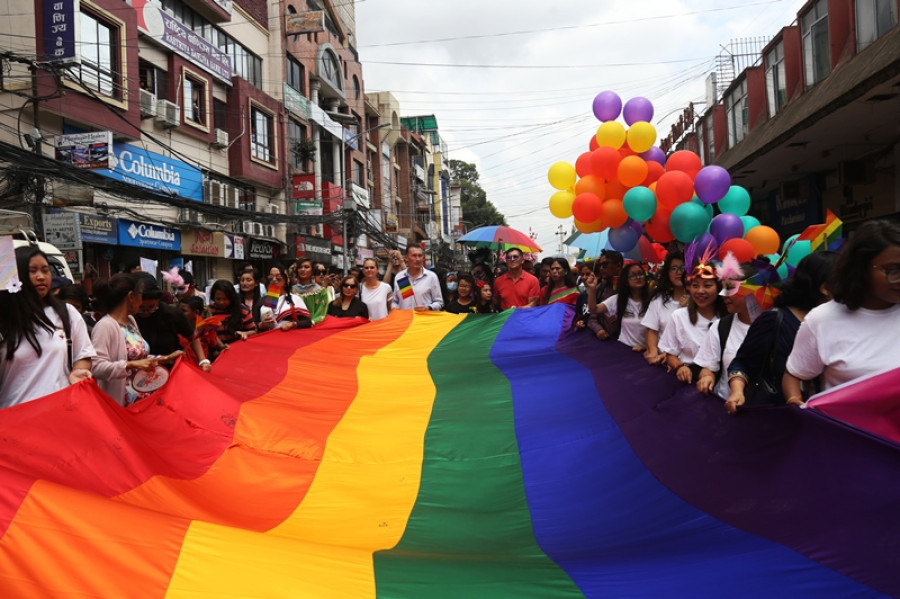Editorial
Pride and procedure
Nepal’s first gender-affirmation surgery buttresses its image as a queer-friendly destination.
June, globally recognised as Pride Month, is also a period of vibrant celebrations and rallies for Nepal’s LGBTQIA+ community. Nepal is considered among the safest nations in South Asia for the individuals. In terms of queer rights and policies, it is more progressive than even some developed nations like the US. While international accolades project Nepal as a forward-thinking nation, LGBTQIA+ individuals face daily challenges that are not so pride-worthy.
One major problem they face is in obtaining health care facilities. Much of the focus on queer rights has been centred on identity and legal recognition. Though as vital, essential medical care has yet to gain adequate focus. Many queer individuals still endure prejudice when seeking healthcare services. Moreover, lack of facilities forces many LGBTQIA+ people to travel overseas for treatment, an expense only few can bear. In this context, the first-ever gender affirmation surgery conducted at Tribhuvan University Teaching Hospital is a cause for celebration and a pivotal step forward for queer rights in Nepal.
Such surgeries provide the physical and functional abilities of one’s self-identified gender. According to the Plastic Surgery Department at the hospital, the surgery was carried out on a 25-year-old transgender woman from Janakpur by a team of Nepali medical professionals with the help of a foreign expert. The availability of gender affirmation surgery in Nepal offers immense relief, as individuals previously had to travel to India or Thailand. Many were spending hundreds of thousands of rupees for their surgery, which would not only financially burden them but also be extremely risky.
Many queer individuals seek gender affirmation surgery or hormone replacement therapy to align their physical body with their gender identity. Additionally, societal and legal pressures to conform to certain appearance standards often drive people to undergo these procedures. These surgeries can be accompanied by weakness, anxiety, bleeding and so on, which makes regular check-ups necessary. But with exorbitant costs just for transport, people undergoing such surgeries cannot afford to visit for follow-ups. However, the procedure is now available in Nepal for just Rs 150,000 to 200,000.
Besides the surgery’s accessibility and affordability, it is noteworthy that a public hospital has begun this service. People who want to get gender affirmation surgeries do not have to knock on the doors of more expensive private hospitals. Previously, when trans people travelled abroad for surgery, there was a big question on the transparency and accountability of such services. TUTH’s gender affirmation surgery initiative also sends the message that the government is now accountable for the wellbeing of queer individuals. It is a hopeful step toward better healthcare for Nepal’s queer community, but issues like lack of standardised protocols still need to be resolved. Gender affirmation surgery requires medical professionals to follow specific clinical protocols. However, the only relevant Nepali law is the ‘The Human Body Organ Transplantation Act 1998,’ which does not address gender affirmation.
The government must realise that legalities and healthcare are intricately linked to improve queer rights. Many trans individuals are still required to show proof of gender affirmation surgeries and undergo invasive medical examinations to obtain legal documents, even as the law doesn’t mandate it. But individuals should not be forced to get such surgeries for legal recognition if they do not want to. Similarly, it is essential to streamline the procedure and build trust, ensuring proper care for those pursuing the surgery. There is a growing interest in the tourism sector to promote Nepal as a queer friendly nation. Perhaps the country could enhance its appeal by promoting quality and affordable healthcare services for LGBTQIA+ individuals.




 13.16°C Kathmandu
13.16°C Kathmandu














